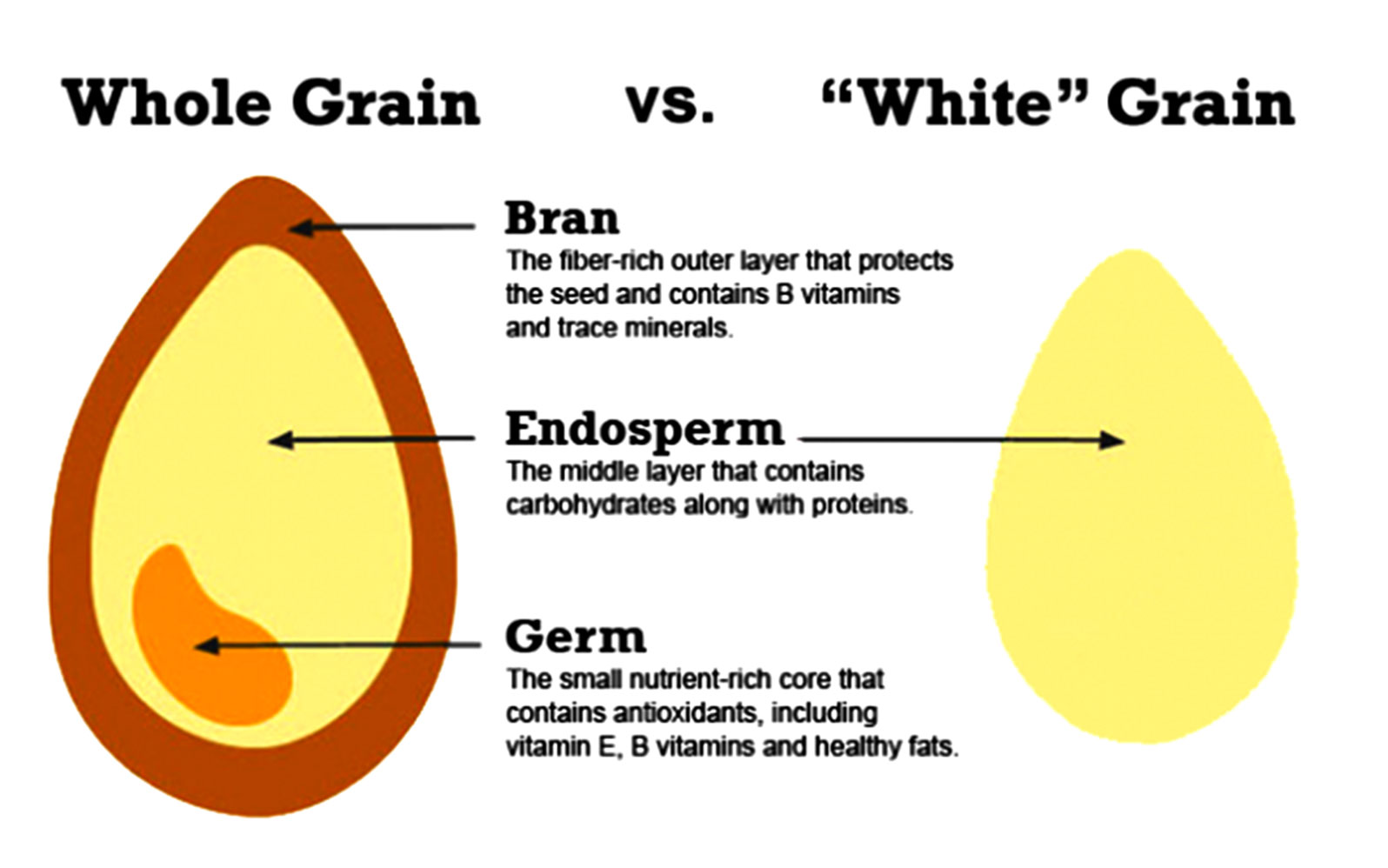A grain is the small hard seed of a plant, usually a grass. We are familiar with grains such as wheat, oats, barley, corn and rice. There are other grains such as wild rice, quinoa, millet, buckwheat, amaranth and farro, to name a few, that are used across the globe.
Grains are made into breads and cereals and are used as a side dish to help complete a meal. Why are whole grains better than refined grains? A whole grain contains the entire grain which includes the outer portion (bran) and inner section (germ). A refined “white” grain does not include these parts as they are removed during processing. Due to this process, certain vitamins and minerals that were removed must be added back. These include B vitamins, iron, selenium and vitamin E. Fiber is also removed during processing but does not need to be added back.
Health benefits of whole grains. Adding whole grains to your diet to replace refined grains has a positive impact on health. Whole grains my help: reduce the risk for heart disease by helping to lower blood cholesterol, reduce risk for type II diabetes and obesity, slow the rise in blood sugars, support digestion and healthy bowel function.
Try this summer whole grain salad recipe. This recipe uses quinoa but can be substituted with wild rice, barley, buckwheat or another whole grain of your choice. Remember, you can get creative with this and use the summer veggies of your choice. It is so fresh and delicious and tastes like summer! Enjoy!

